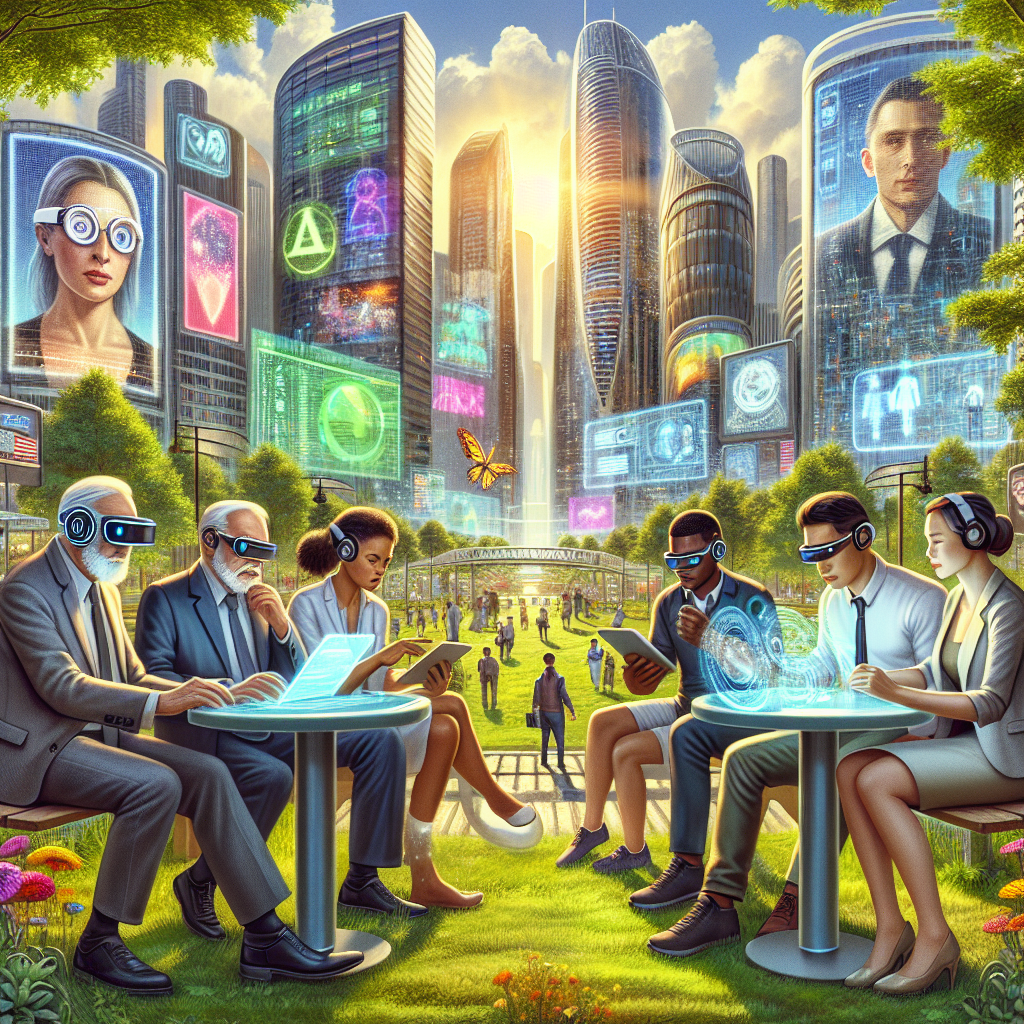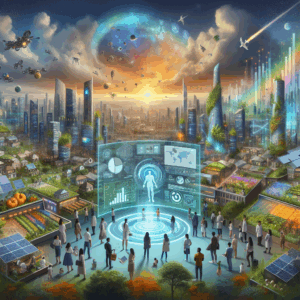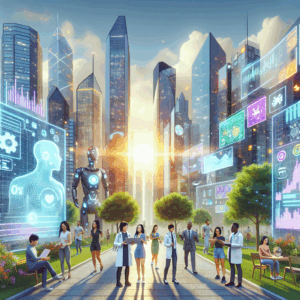The Impact of AI on Technology and the Job Market: Future Trends and Skills Demand
Introduction
Artificial Intelligence (AI) is not just a buzzword but a transformative force reshaping the technology landscape and the job market. As AI technologies continue to evolve and infiltrate every aspect of our daily lives and work environments, it’s essential to understand the implications for various job markets. This transformation is not just a technological revolution but also a catalyst heralding changes in workforce skills. Developers, technologists, and business leaders must navigate these changes to thrive in an AI-driven economy.
AI in Different Technology Fields
AI’s profound impact is evident across several major tech sectors. In software development, AI tools like machine learning algorithms enhance code quality and reduce development time, automating routine tasks and predicting errors before they occur. For example, AI-driven platforms such as GitHub Copilot use machine learning to assist programmers by suggesting lines of code and functions, thus boosting developer productivity.
In cybersecurity, AI improves threat detection and response times, as AI systems analyze vast datasets to identify patterns and anomalies indicative of cyber threats. AI solutions like Darktrace can autonomously neutralize potential threats, safeguarding networks more efficiently than traditional methods.
Data analysis is another sector where AI has made significant strides. AI-powered analytical tools can sift through massive datasets, providing insights at unparalleled speeds and precision. Companies like Palantir use AI to transform complex data into actionable insights, enhancing decision-making processes across industries.
These examples demonstrate AI’s potential to increase productivity, improve accuracy, and cut costs while highlighting the importance of adapting to these new tools.
Changes in Job Demand: Technical vs. Non-Technical Skills
The relentless march of AI into various fields has altered the demand for both technical and non-technical skills. On the technical side, there’s an increasing demand for expertise in AI and machine learning, data science, and cybersecurity. Positions requiring skills in natural language processing (NLP) or AI system design are on the rise, as companies seek individuals who can create and manage intelligent systems. According to recent job market data, postings for AI-related roles have grown exponentially, reflecting the need for these specialized skills.
Non-technical skills, however, should not be overlooked. As AI systems take over routine and analytical tasks, skills such as creativity, emotional intelligence, and adaptability become invaluable. The ability to think creatively and empathically in problem-solving remains essential, even in a technology-driven context. As machines perform more of the “logical” work, uniquely human skills will hold greater value.
Impact on Employment Rates and Workforce Composition
AI’s impact on employment is a double-edged sword. On one hand, it automates certain jobs, raising fears of displacement. Roles in production lines or data entry, subject to automation, may see declines. On the other, AI creates new opportunities, driving demand for workers skilled in developing and managing AI systems. For instance, the growth of AI in healthcare has led to new roles in AI-driven diagnostics and personalized medicine.
To manage these shifts, workforce transitions, and retraining initiatives play pivotal roles. Many industries have established programs to reskill their workforce, transitioning employees from roles at risk of automation to those empowered by AI tools. Predictions for the future suggest a collaborative workforce where humans and AI systems work in tandem, leveraging each other’s strengths.
Case Studies of AI’s Effect on Specific Industries
AI’s influence varies across industries, as seen in healthcare, finance, and manufacturing.
In healthcare, AI innovations like telemedicine and AI-driven diagnostics are creating new job roles while displacing some traditional ones. Companies like IBM’s Watson have transformed diagnostic practices by analyzing patient data more accurately than humans.
In the finance sector, AI algorithms automate risk assessment and fraud detection, creating job opportunities focused on AI supervision and system refinement. Meanwhile, traditional roles such as manual account reviews are diminishing.
Manufacturing illustrates a mix of displacement and creation, where AI automation performs repetitive tasks while generating demand for engineers and technicians skilled in AI system maintenance and innovation.
Each industry’s adaptation strategies and workforce planning efforts shed light on how AI can disrupt and revitalize job markets differently.
Future Workforce Trends and Predictions
The future workforce in an AI-driven economy will need to emphasize specific skills. Technical proficiency in machine learning, robotics, and data interpretation will be crucial. Furthermore, workers should cultivate adaptability and continuous learning, supported by educational systems and training programs that address current skills gaps.
As technology rapidly evolves, educational institutions must prioritize STEM education while also fostering soft skills like critical thinking and collaboration. Innovative training programs will be vital to prepare workers for new roles emerging in the AI landscape.
Long-term projections suggest a diverse workforce where both human and AI competencies are essential. As AI integration becomes more ubiquitous, job market evolution will be characterized by races between automation and the creation of new, previously unimaginable roles.
Conclusion
AI technology is reshaping the job market around the world, redefining what skills are in demand and how work is conducted. The inevitability of these changes brings both challenges and opportunities. Continuous learning, adaptability, and proactive workforce planning will be crucial for navigating this transformation. Policymakers and organizations need to support these transitions, ensuring that workers are equipped to adapt to the rising demands of an AI-driven economy. The evolving landscape offers a promising future for those ready to embrace the skills of tomorrow.
Sources & Links
- How Artificial Intelligence Is Transforming The Job Market – Forbes
- International Technology Transfer – EBSCO Research Starters
- 6 Technologies to Help the World Adapt to Climate Change – World Economic Forum
- AI Under Fire: Legal and Ethical Controversies Shake the Tech World
- 17 Top Healthcare Innovations – InPart





